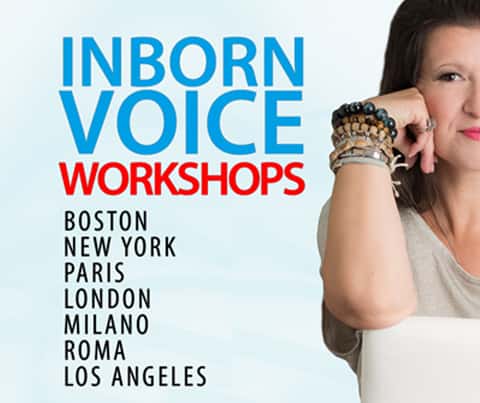How to express and convey emotions through the voice
The Inborn Voice method is the only one that is based on a deep connection with the emotions of both the speaker and the receiver. Words have almost no value in interpersonal communication, sometimes even a single sound is enough to find an understanding.
Living the emotions
Emotions are a momentary psychophysical state related to someone's physiological reactions. This means that it is not a mental state: one cannot imagine feeling pleasure in order to trigger the biochemical reactions of that moment, but one must really experience it. From this it follows that no one can express with their voice an emotion that they fear to feel first hand.
The voice must be able to evoke in the listener the same emotions as experienced by the speaker, while remaining incredibly clear and therefore understandable to all. This is a fundamental point of the Inborn Voice Method . You can't convince anyone of your enthusiasm if you don't experience positive emotions yourself, just as a singer can't convince anyone of deep suffering if they actually experience different emotions.
The increase in muscle tension caused by the fear of experiencing an emotion inhibits all vocal expression. When it comes to the voice, one of the first barriers to break down is precisely shyness, because it inhibits the spontaneity of the body. This does not mean changing personality, but learning that in everyday life, we are the ones who choose when and how much to be shy: no one is shy in every moment of their life, but only in those in which they choose to be shy.
How to overcome shyness
Shyness is a mental state, it is not something real. It cannot be overcome as long as we talk about it or with continuous incitement, but only with willpower.
How to express emotions
I often hear the concept of "color of the voice" being misused as well.
Let's try to make an example that is easily understood by all. The color is the one related to the emotion that is being received, be it music or voice, no matter which convention is used. Let's imagine a person who is "dark" in the face. According to our experience we can visualize anything from sadness to anger. None of us will think of a smiling or joyful face. Why do I increasingly hear the term "dark voice" related to smiling faces? It is clear that there is dystonia between reality, the meaning of words and the judgment that people accept for good./p>
On the other hand, it is impossible to think of expressing an emotion that we are not able to experience first-hand because of the fictions that we have built around ourselves. That's why Inborn Voice is getting every day more and more success withing the acting community.
By restoring one' s voice, everyone will naturally tend to abandon pieces of the mask he/she has created to offer what he/she believes to be the best to others. He will regain his deepest self, leaving behind all the unconscious fears that condition its expressiveness, returning to his inborn voice.







